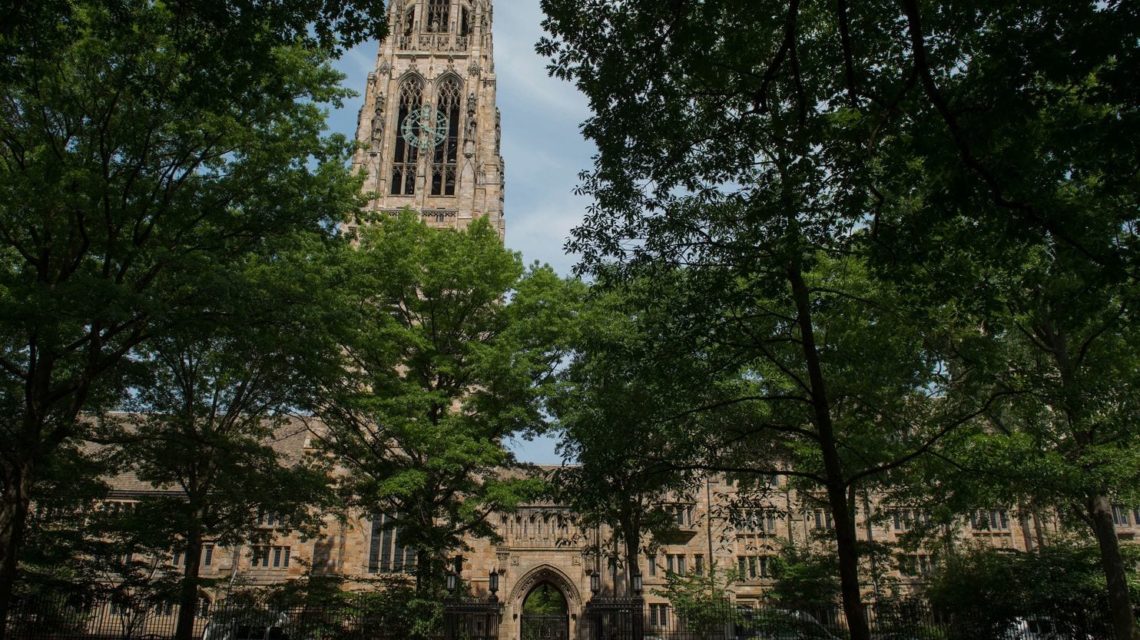By Colin Dickey
The Washington Post, April 15, 2019.
Ben Wurgaft started applying for full-time, tenure-track academic jobs in 2009. He had a PhD from a top history program, and his dissertation advisers were famous intellectuals, but he knew that the job market was tight. He was still unprepared for the sheer amount of work it would take to put together applications.
Every year he was on the market, Wurgaft would spend eight to 20 hours a week from early September until mid-November working on applications. For each listing, he’d spend an hour or two looking at an institution’s website, reading up on faculty bios, course descriptions and mission statements, trying to get a feel of the university — and then tailor his materials accordingly. He ended up with numerous versions of the same documents: a 500-word statement of his research interests, alongside a 700-word version of the same thing, for example — endlessly repackaging himself for different institutions.
For those outside academia, it can be difficult to understand why applying for academic jobs is so time-consuming. Academic job postings typically ask for far more than just a CV and cover letter, and there’s little consistency from one university to the next: They may want letters of recommendation from colleagues or advisers, a multi-page description of future research projects, a writing sample, a teaching philosophy, sample syllabi from classes the candidate has taught, even teaching evaluations. And because different schools have different needs, applicants can’t necessarily send out the same canned letter and CV to every school.
The result — as Wurgaft’s experiences reveal — is a second, unpaid job: seasonal part- to full-time work for academics every fall, all during what is often a young scholar’s most productive period. It’s a mandatory distraction that rarely results in a job but still eats up time that might be better spent in research or writing.
Until academic search committees streamline that workload by minimizing requested materials, or at least moving away from highly specific, tailored demands, new academics are only going to get more bogged down in this mostly useless work.

Structured around the academic calendar, professorial postings typically appear between September and November. Inevitably, the applicant pool is saturated. For decades, universities have been turning to contingent, adjunct labor, dramatically reducing the amount of full-time tenure-track positions: Tenure-track history positions, for example, have declined consistently since 2008, while the number of PhDs granted keeps rising — such that “the number of new Ph.D.s in history is routinely more than twice the number of positions being posted,” according to Inside Higher Ed.
In STEM fields, it’s not much better: A 2015 Bureau of Labor Statistics report found an “oversupply of Ph.D.’s desiring an academic career” compared with “the relative paucity of tenure-track faculty positions.” With so little supply, it’s not unusual for a job listing to receive 100 to 450 applicants, and almost all of them are likely to be credible contenders for the position.
It’s here that the workload becomes an issue. Many institutions ask applicants to explicitly address their own mission statements in cover letters. Many also ask for a diversity statement — a document explaining the applicant’s past record and future goals for increasing diversity and equity in higher education. Some search committees ask for this as a separate, multi-page document, while others want it embedded in the cover letter. Some want materials uploaded into their university’s specific HR software; others want everything bundled into a single PDF file. Some want you to attach a CV, followed by manually entering each line of that CV into the university’s website. A posting for a job in literary translation at the University of Vienna asked for so many items that it also mandated a table of contents.
Search committees are often just trying to get as much detail about candidates as they can get, but in some cases their goal is to actually narrow the pool. The more specific the requests, the reasoning goes, the fewer people who will apply. Ultimately, search committees ask for specific, excessive material in large part because they can — it’s a hirer’s market, and individual candidates have little leverage when they are competing against hundreds.
“Mostly what I hate,” said one graduate student, who spoke on the condition of anonymity so as not to hurt her chances of getting a job, “is how much dissertation writing time this has eaten up. I lost basically all of September and October to prepping job materials, which was time I needed for writing.”
This can be doubly frustrating when the faculty members on search committees don’t seem to care. “Candidates put incredible effort into their résumés and CV’s and often believe that search committees have perused them carefully,” Allison M. Vaillancourt, vice president for human resources at the University of Arizona in Tucson, wrote recently in the Chronicle of Higher Education.
And whether they read them carefully, many don’t have a sense of how much effort went into putting them together. “How hard is it to upload your C.V., cover letter, and 3 letters of rec?,” Jamie Litty, chair of the mass communications department at the University of North Carolina at Pembroke, asked on Twitter, a comment that ignores the often hidden workload of job applications.
“It wastes everybody’s time,” Robert Larson, a graduate student at Ohio State, responded when I brought up the problem on Twitter. Dylan McLemore, assistant professor of public relations at the University of Central Arkansas, concurred: “It’s a huge burden on PhD students trying to finish a dissertation and land a job.” Saul Jaime, a postdoctoral research fellow, captured the frustration succinctly: “Job postings and recruiters want us to respect their time but they are not willing to respect ours.” English PhD student Michael Carosone was more blunt: “Huge waste of time,” he wrote. “It’s abuse. It’s cruelty. It’s all smoke and mirrors. It’s about power.”
Faculty who have served on search committees respond that academic hiring is high-stakes: If someone doesn’t work out, the department may be stuck with a bad fit; if they don’t get tenure, the department may not get the line renewed. So committees want to do everything they can to make informed decisions — and usually that means documents.
Patricia Matthew, associate professor of English at Montclair University and editor of “Written/Unwritten: Diversity and the Hidden Truths of Tenure,” notes that more elaborate applications can “actually help candidates make a stronger case,” especially when they’re from less prestigious schools.
Such considerations are vitally important, but those candidates can also be the ones most likely to be hurt by the increased workload. Besides, there’s no guarantee that all those additional materials will get read, especially when there are hundreds of other applications in the pile. If committees really take such concerns seriously, they need to stop asking for highly specific documents at the start of the process, even if they do call for them later.
Roland Greene, a professor of English and comparative literature at Stanford, stressed that “departments have to recognize that people are applying to many different places and they should be willing to accept something generic.” (Matthew agrees that standardizing requirements “should be a lot easier” and that professional organizations should set out guidelines for what’s reasonable to ask of candidates.) If committees absolutely need more specific information, they can always request it in the second or third round, when they have whittled their applicant pool down to those who at least stand a fighting chance of getting the job.
There are plenty of ways search committees can do more with less. The University of Chicago’s Harris School of Public Policy, for example, looks at only one thing during the first round review of applicants: an anonymous abstract of each candidate’s writing sample. (In economics, this is referred to as a Job Market Paper, and it’s standard for the discipline.)
“The main thing we’re looking for,” Ethan Bueno de Mesquita, a professor and deputy dean in the program, explained to me, “is people’s research. We’re trying to read a few hundred applications, there’s four people on the committee and there’s a few hundred applications … We can’t spend an hour with each application, but we can spend a couple minutes with each application.”
It’s not a method that will work everywhere, but Bueno de Mesquita and his colleagues are doing one thing right: being upfront about their needs and the criteria by which they will evaluate applications. The more vague or expansive a committee is about its needs, the more time candidates will waste trying to divine their intentions and endlessly editing different versions of their application materials in hopes of cutting through the fray.
If other programs — and perhaps whole disciplines — could similarly standardize and streamline their approaches, the process would be far easier for everyone.
Likewise, if they move toward accepting the most universal and generic form of application materials, they can help cut down on the amount of time applicants spend in the fall, and make an already difficult task slightly less onerous.










